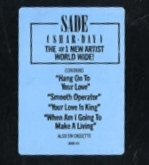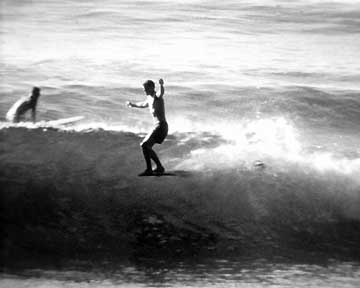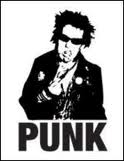But this idealization of punk was not conceived with the first cresting wave of Dookie. Even in the 1980s, as the dead end of hardcore's louder, faster nihilism became increasingly apparent, it was clear to many that punk must be embraced not as a doctrinaire adherence to rules but as a contrarian attitude that could manifest itself only in unexpected ways, for a community unified only by its appreciation of difference for its own sake, as sheer possibility, as a utopian expression of perfect tolerance for the collective commitment to shambolic forms of individualism. Punk required not obedience but imaginative disobedience, but not to any given sets of laws per se, but to the Law as such, to the illusion of self-identity. The point was to shatter the coherence of the symbolic, render illegible the codes of cultural capital and distinction. That's why the most punk-as-fuck thing I did as a teenager wasn't going to any hardcore show at City Gardens or performing any act of juvenile destruction to my hair. It was when I caught a ride to the mall with my mom, went to the Listening Booth, and plunked down $7.99 plus tax for a copy of Diamond Life by Sade. (Pronounced Shar-day. It said so right on the wrapper.)

By arguing for the punkness of Sade, I don't mean only to make a claim that she was punk in relation to the cultural consumption choices available to the average white suburban teenage boy in America in the mid-1980s, though that was almost indisputably the case — Sade was as punk in this sense as were Duran Duran, Spandau Ballet, Level 42, and Swing Out Sister, all of which were music-listening alternatives considered far beyond the pale (pun intended) for the males in high schools like my own.
And I don't intend to argue merely that as an African-born soul musician, Sade qualifies as an ethnically Other punk inspiration or foil, like the ska and reggae acts that were appropriated by punk bands like the Clash. I want to insist that Sade's music itself, and not merely her relative position on a matrix of anticipated tastes plotted according to class habitus, must be understood as punk.
Sade's poised, cosmopolitan jet-setter image may seem less readily assimilable to the anti-hierarchical ethos of punk, but she must be interpreted as a figure of the outsider, condemned to a existential homelessness, embodying the rootless affect of the drifter with no anchor in the existing order. The first words she speaks on her debut album, in her evocative, accented English, after all, are "laughing with another girl and playing with another heart." Ostensibly about the male playboy denoted by the pronoun he in subsequent lines, these words also apply to Sade herself. They introduce ludic alterity as not only a tactic indicative of the lover's presumably egregious callousness but also as a tactic of the singer, a "smooth operator" pedaling deceptively smooth music as complacent background noise, thereby immediately transforming it into a stealthy abrasive. Unlike such clumsy and obvious attempts at punk such as this effort by the Exploited, Sade gets on the skin and rubs it raw.
Reviewers and critics generally read Diamond Life as a straight take on sequencer-assisted cocktail jazz, dismissively overlooking the rich, corrosive ironies layered into virtually every track. Consider "Hang On to Your Love," a seething piece of lounge funk that takes as its subject the biopolitical constrictions of enforced monogamy, by which one must cling to suffocating relationships "if you want your love to grow." The contradictions of this position climax in the couplet "Hang on tight, don't fight," a semi-ironic paean to passivity, both a betrayal of the generative potential of love as well as protection against that energy being expropriated. Power is exercised by "hanging on," avoiding overt conflict; productivity is expressed as stasis, an apt figure for succumbing to the emerging Deleuzian society of control, in which "everywhere surfing has already replaced the older sports," while seeming to resist its flows. (Surfing, of course, is a sport in which participants "Hang ten.")

I would like to assert that punk, particularly as Sade practices it, names precisely that impossible juncture at which resistance becomes surrender without ceasing to be either. The best expression of this is perhaps in the aspirational anthem "When Am I Going to Make a Living," in which Sade gives voice to the generation that is "hungry for a life we can't afford." She alternates between giving advice to this generation ("They'll waste your body and soul if you allow them to") and claiming membership ("We're hungry but we won't give in"), indicative of the inherently shifting subject position Sade attempts to give form to. Identity is chief among the "many lies no one is achieving." At the same time Sade tells us not to blame anyone else for our lack of place in the social order, she also notes the "sharks wheeling and dealing" and her own exhaustion at "scratching a living." The result is a prismatic take on precarity, the quintessential affect of punk subjectivity: "no future."
But the song's key line is "There is no end to what you can do," an obvious double-entendre pregnant with implicit meaning. The subjects Sade addresses exist as sheer potential, posited as limitless because untapped and directed toward no productive "end." They exist in a perfect state of "whatever being," to use Agamben's term, or "punk," to use the term I am limning in this essay. Yet these subjects, as Sade interpolates them, experience their unresolved identity as hunger, as lack, as the threat of endless exploitation that will waste their body and soul in abstract labor. We must remain hungry without giving in, we must embrace desire without it bringing us to assume identity. If we are unable to exist within the instabilities of punk identity as Sade traces it, we risk succumbing to the serial production of the self as a form of capitalist labor. "No end" is, paradoxically, "no future."

